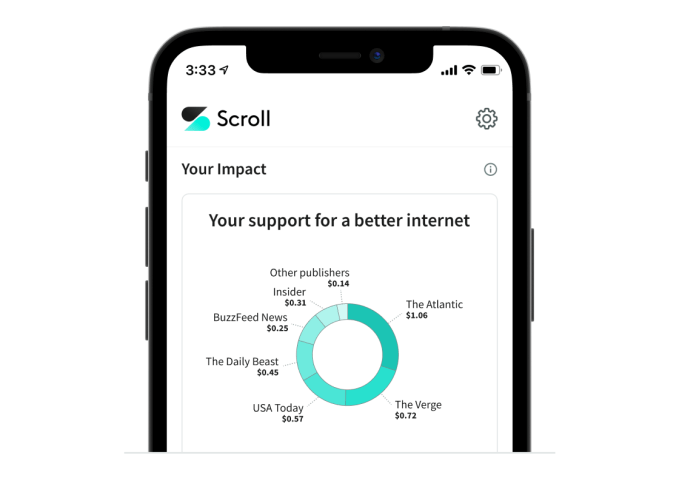The market remains very hot for startups building e-commerce empires by consolidating independent third-party merchants that have gained traction on Amazon’s Marketplace, and in the latest development, Razor Group — a Berlin-based startup buying up promising Amazon sellers and scaling them into bigger, multi-channel businesses — has closed financing of $400 million to scale its
The market remains very hot for startups building e-commerce empires by consolidating independent third-party merchants that have gained traction on Amazon’s Marketplace, and in the latest development, Razor Group — a Berlin-based startup buying up promising Amazon sellers and scaling them into bigger, multi-channel businesses — has closed financing of $400 million to scale its own efforts in the space.
Around $25 million is coming in the form of equity to grow its business and $375 million is in debt to make acquisitions, with target businesses typically already pulling in between $1 million and $15 million in annual revenues.
Razor Group itself is not even a year old but has been building out its business at a fast pace. Founded in August 2020, in the last eight months, CEO Tushar Ahluwalia said the startup has grown to 107 employees across four offices and is currently on track to cross $120 million (€100 million) in sales from the 30 brands it has already amassed in its stable in categories like personal wellness, sports and home and living. Assuming the debt capital it’s now raised is put to use, Ahluwalia believes Razor Group will cross $480 million (€400 million) in sales in the next 12 to 15 months.
As a point of comparison, Thrasio, one of the older players in this current market, was founded in 2018 and has 100 brands in its stable.
Indeed, there are, as you might have seen, a lot of others in the market pursuing the “FBA rollup” model — consolidating businesses that have been built on the back of Fulfillment by Amazon, with the pitch being they can apply more sophisticated economies of scale, analytics and management to grow great cottage industries into high rises, so to speak. But Razor believes its point of differentiation is its focus on technology to improve its responsiveness to the market, both when it comes to identifying and buying brands, and then growing them.
It’s a big opportunity. By one estimate there are about 5 million third-party sellers on Amazon today, and their ranks are growing exponentially, with more than 1 million sellers joining the platform in 2020 alone. Thrasio has in the past estimated to me that there are probably 50,000 businesses selling on Amazon via FBA making $1 million or more per year in revenues.
“It’s perfectly acceptable to build an FBA-based business, but at some point you can move beyond that,” Ahluwalia said in an interview. “We want to transform what we see as the levers of business operations in this space. We don’t see ourselves as the next P&G, but a new version of it, building microchampions in micromarkets, identifying underpriced digital real estate. Just thinking about it as abritrage is not enough.”
The funding, a mixture of equity to invest in the startup itself and debt to use for acquisitions (and it is mostly debt), is being led by funds and accounts managed by BlackRock and Victory Park Capital (“VPC”) as well as its existing shareholders, a list that includes a number of individuals as well as VCs such as Redalpine, FJ Labs and Global Founders Capital, the VC firm co-founded by the Samwer Brothers, also behind the well-known Berlin e-commerce incubator Rocket Internet.
Ahluwalia and Razor’s head of finance Christoph Gamon — who together co-founded Razor with CTO Shrestha Chowdury — are both Rocket Internet alums, and Ahluwalia and Chowdury also worked on a previous e-commerce business in India called StalkBuyLove (a clone of Wanelo — short for “Want Need Love” — for India, I think) that ran out of cash and shut down.
All of that speaks to both the inroads that the founders may have had into gaining some early financing from other Rocket alums and others, as well as their experiences, both good and bad, of what it takes to grow and scale e-commerce businesses.
Including the $25 million in this latest tranche, the funding brings the total raised in equity by Razor Group to about $40 million — with the previous money being used to get the ball rolling and “validate the model”, Ahluwalia said. It’s not disclosing its valuation today but he confirmed it’s also raising another, larger equity round when it will be speaking more about that.
Meanwhile, the huge injection of debt financing it is getting for acquisitions — doubled after its original plan to raise $200 million got a lot of interest — is a sign not just of what investors and Razor Group itself see as an opportunity, but also of the encroaching competition from other roll-up players that are also well capitalized also setting their sights on buying up the most promising independent businesses selling via Amazon and other marketplace providers.
That list of competitors is getting longer by the day. It includes Thrasio, one of the first startups to identify and build out this space, which has raised very large rounds in rapid succession totaling hundreds of millions of dollars in the last year, and is profitable; Branded; Heroes; SellerX; Perch; Berlin Brands Group (X2); Benitago; and Valoreo (with its backers including Razor’s CEO).
The opportunity is also breeding other e-commerce startups like Jungle Scout, which has also raised $110 million recently, providing tools to some of those third-party sellers to help them stay, in fact, independent (or at least grow more to be more valuable to acquirers)
Razor believes that its ability to stand out in this crowd will not just be based on how much money it has to spend, but on the technology that it is using to identify the best third-party sellers faster in order to roll them up first, and then to leverage that early move by giving those companies better tools to grow faster.
Chowdhury describes the platform that she has built as “M&A 2.0”, a system that performs “massive due dilligence” at machine scale by evaluating some 1 million companies each week as they perform on platforms like Amazon’s. “Technology runs through the whole business,” she said, started with the acquisitions, where Razor is identifying the most interesting companies faster than others, she said. “We look at thousands of data points,” building algorithms, she continued, “to flag what we want to acquire. It means that our acquisitions funnel is 99% sourced directly and we don’t rely on brokers.” Brokers, she said, are something of a unspoken part of this area, but bypassing them means less competition and better pricing.
Being early also means building better relationships with the owners of these businesses, with less time pressure.
“Dealmaking is something extremely personal,” Ahluwalia said. “A seller needs to like you. Our calculations have allowed us to be the first in these deal conversations”
Further along, that data will also help Razor build those businesses and figure out where else brands can be sold beyond Amazon and how to sell them better.
That is a plan that has yet to be proven out, given the age of the company, but investors — adding up the numbers and track record of these founders, and the tech they have built — are willing to bet on this one.
“We are excited to partner with Tushar, Chris, and the rest of the Razor Group team. The ability to identify, underwrite, integrate and ultimately create tangible value across a broad suite of eCommerce assets is a real competitive advantage in the marketplace,” said Tom Welch, partner at VPC, in a statement.
“We are pleased to make this investment in Razor Group to support the company’s strong growth momentum as it continues to diversify its portfolio of brands and expand into new markets,” added Dan Worrell, MD at BlackRock.








